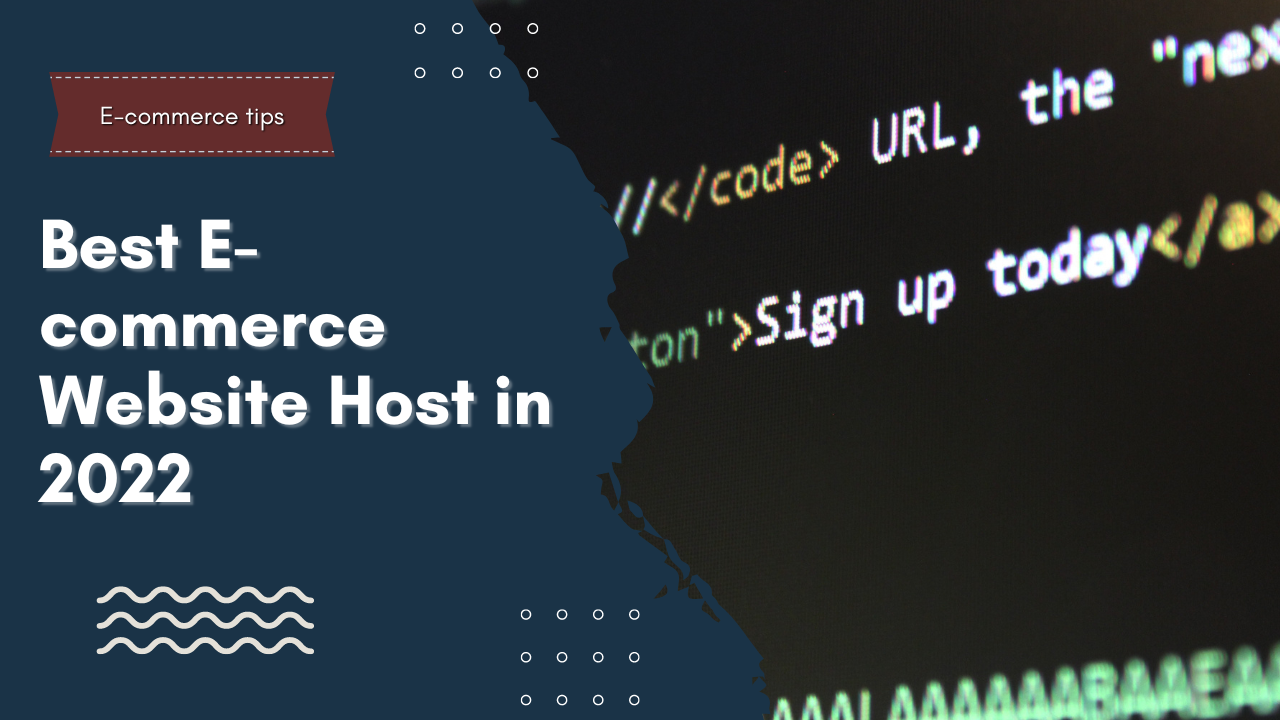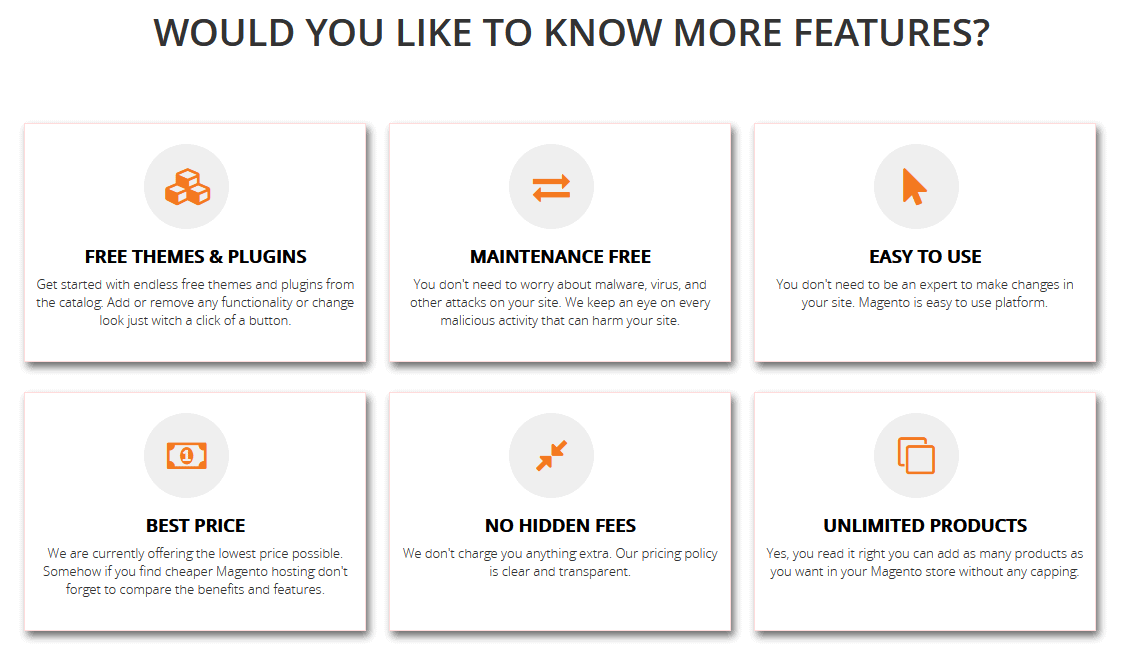The best hosting plan for an ecommerce website is a VPS or dedicated hosting. These plans offer optimal performance and security.
Choosing the right hosting plan is crucial for ecommerce success. VPS and dedicated hosting provide enhanced speed, reliability, and security, essential for handling high traffic and sensitive customer data. Shared hosting often lacks the resources needed for ecommerce platforms. With VPS or dedicated hosting, you get dedicated resources, ensuring smooth operation and quick loading times.
These plans also offer scalability, allowing your business to grow seamlessly. Security features, such as SSL certificates and advanced firewalls, protect against cyber threats. Investing in a robust hosting plan ensures a better user experience and higher conversion rates, making it a wise choice for serious ecommerce entrepreneurs.
Shared Hosting
Shared Hosting is one of the most popular choices for ecommerce websites. It is an affordable option that allows multiple websites to share a single server’s resources. This makes it a great choice for those just starting out with their online store. But is it the best hosting plan for your ecommerce website? Let’s dive into the details.
Pros And Cons
Pros:
- Cost-effective: Shared hosting is usually very cheap.
- Easy to manage: Hosting providers handle server maintenance.
- Beginner-friendly: User interfaces are often simple and intuitive.
Cons:
- Limited resources: You share resources with other websites.
- Performance issues: High traffic on other sites can slow yours down.
- Security risks: Vulnerabilities in one site can affect others.
Best For Small Shops
Shared hosting is ideal for small ecommerce shops. If you have a limited budget, this hosting plan can save you money. Small shops with low to moderate traffic will benefit from the shared resources. Here’s a quick comparison:
| Feature | Small Shop Needs | Shared Hosting Offers |
|---|---|---|
| Budget | Low | Low cost |
| Traffic | Low to moderate | Handles low to moderate traffic |
| Technical skills | Beginner | Beginner-friendly |
Small shops don’t need high-end servers. Shared hosting provides enough resources. If you anticipate growth, plan to upgrade in the future. For now, shared hosting is perfect for your small ecommerce shop.
Vps Hosting
Are you planning to launch an ecommerce website? Choosing the right hosting plan is critical for your success. One popular option is VPS Hosting. VPS, or Virtual Private Server, offers a great balance between cost and performance. It provides more resources compared to shared hosting but at a lower cost than dedicated hosting.
Scalability Features
VPS hosting shines with its scalability. As your business grows, your hosting needs will change. VPS allows you to easily adjust your resources. You can add more CPU, RAM, or storage as needed. This flexibility ensures your website can handle increased traffic and transactions.
Here’s a quick look at scalability benefits:
- Easy resource upgrades
- Pay only for what you need
- Minimal downtime during upgrades
VPS hosting ensures your ecommerce site is ready for growth without significant costs.
Performance Benefits
Performance is key for any ecommerce website. VPS hosting delivers excellent performance. It offers dedicated resources that aren’t shared with other users. This results in faster load times and smoother user experiences.
Here’s why VPS hosting excels in performance:
- Dedicated CPU and RAM
- Faster website load times
- Improved reliability
- Better security compared to shared hosting
With VPS hosting, your ecommerce site can handle high traffic and complex transactions. This ensures a seamless shopping experience for your customers.
Considering these scalability and performance benefits, VPS hosting is an excellent choice for ecommerce websites.
Dedicated Hosting
Choosing the right hosting plan is crucial for an e-commerce website. Dedicated hosting offers the best performance, security, and control. It is perfect for businesses with high traffic and resource-intensive applications.
Full Control
With dedicated hosting, you get full control over your server. You can customize hardware, software, and settings to suit your needs. This level of control is essential for optimizing site performance.
- Install any software you need
- Customize server configurations
- Access to advanced administrative tools
Full control means you can implement advanced security protocols. This helps in safeguarding sensitive customer data.
Security Advantages
Security is a top priority for any e-commerce site. Dedicated hosting provides multiple security advantages.
| Feature | Benefit |
|---|---|
| Isolated Environment | No sharing of resources with other websites |
| Advanced Security Configurations | Implement firewalls and intrusion detection systems |
| Regular Monitoring | Continuous scanning for vulnerabilities |
These security features protect your website from cyber threats. This ensures a safe shopping experience for your customers.

Credit: capforge.com
Cloud Hosting
Choosing the right hosting plan for your ecommerce website is crucial. Cloud Hosting has emerged as a top choice for many businesses. It offers scalability, flexibility, and reliability. Below, we delve into the specifics of cloud hosting and why it might be the best option for your ecommerce website.
Flexibility And Reliability
Cloud Hosting provides unmatched flexibility. You can easily scale resources up or down based on traffic. This ensures your website runs smoothly during peak times. Additionally, cloud hosting distributes resources across multiple servers.
This ensures reliability since the failure of one server won’t affect your site. Your website remains accessible and performs optimally. This is crucial for maintaining a positive user experience.
Cost Considerations
Understanding the cost of cloud hosting is essential. Cloud hosting often uses a pay-as-you-go model. This means you only pay for the resources you use. This can be more cost-effective compared to traditional hosting plans.
Consider the following cost factors:
- Resource usage
- Storage needs
- Bandwidth
- Additional features
Here’s a simple comparison table:
| Feature | Cloud Hosting | Traditional Hosting |
|---|---|---|
| Scalability | High | Low |
| Cost Model | Pay-as-you-go | Fixed |
| Reliability | Very High | Medium |
Cloud hosting offers better value for growing ecommerce sites. It ensures your site can handle traffic and remain reliable.
Managed Hosting
Choosing the right hosting plan is vital for your ecommerce website’s success. Among the various options, Managed Hosting stands out for its comprehensive features and benefits. Managed Hosting means your hosting provider takes care of server management, security, and support, allowing you to focus on your business.
Expert Support
With Managed Hosting, you get access to a team of expert support professionals. These experts are available 24/7 to help with any issues or questions. This constant support ensures your website runs smoothly, reducing downtime and technical hiccups.
- 24/7 availability
- Quick response times
- In-depth knowledge of ecommerce platforms
Expert support means you don’t have to be a technical wizard. You can rely on professionals to handle complex tasks, saving you time and stress.
Ease Of Management
Managed Hosting simplifies website management. Your hosting provider handles server maintenance, updates, and security patches. This allows you to focus on growing your business instead of managing technical details.
Benefits of Managed Hosting include:
- Automated backups
- Regular security updates
- Performance optimization
With these tasks managed for you, your site stays fast, secure, and reliable.
| Feature | Benefit |
|---|---|
| Automated Backups | Ensures data safety and easy recovery |
| Security Updates | Protects against threats and vulnerabilities |
| Performance Optimization | Keeps your site running smoothly |
Choosing Managed Hosting for your ecommerce website offers peace of mind and efficiency. You can focus on your business while the experts handle the technicalities.

Credit: www.hostinger.com
Key Factors To Consider
Choosing the best hosting plan for your ecommerce website is crucial. It affects your site’s performance and user experience. Here are the key factors to consider.
Speed And Uptime
Speed and uptime are vital for an ecommerce website. Your site needs to load quickly. Slow speeds can lead to lost sales. Uptime is equally important. Your site should be available 24/7. Look for a hosting provider that offers at least 99.9% uptime.
Consider the hosting provider’s data centers. Multiple data centers can improve speed and reliability. Content Delivery Networks (CDNs) can also help. A CDN caches your site on servers worldwide. This reduces loading times for users far from the main server.
Customer Support
Customer support is another key factor. Issues can arise anytime. You need a hosting provider with 24/7 support. Look for multiple support channels. These can include live chat, phone, and email.
Check the response times for support tickets. Faster response times mean quicker issue resolution. Support staff should be knowledgeable. They should help with technical issues quickly. Good support can save you time and stress.
Scalability Options
Scalability options are crucial as your business grows. Your hosting plan should grow with you. Start with a plan that fits your current needs. Ensure the provider offers easy upgrades.
Look for plans that offer more resources. This includes CPU, RAM, and storage. Some providers offer auto-scaling. Auto-scaling adjusts resources based on traffic. This ensures your site runs smoothly during traffic spikes.
| Factor | Details |
|---|---|
| Speed and Uptime | 99.9% uptime, fast loading times, CDNs |
| Customer Support | 24/7 support, multiple channels, fast response |
| Scalability Options | Easy upgrades, auto-scaling, more resources |
Popular Hosting Providers
Choosing the best hosting plan for an ecommerce website is crucial for success. With many popular hosting providers, deciding can be tough. Here, we explore the top picks and compare them to help you choose wisely.
Top Picks
Below are some of the most popular hosting providers:
- Bluehost
- SiteGround
- HostGator
- Shopify
- BigCommerce
These providers offer excellent services and have good reputations. Each one has unique features tailored for ecommerce.
Comparative Analysis
Here’s a table comparing the top hosting providers:
| Provider | Starting Price | Storage | Support | Security |
|---|---|---|---|---|
| Bluehost | $2.95/month | 50 GB | 24/7 | Free SSL |
| SiteGround | $3.99/month | 10 GB | 24/7 | Free SSL |
| HostGator | $2.75/month | Unlimited | 24/7 | Free SSL |
| Shopify | $29/month | Unlimited | 24/7 | SSL, PCI Compliant |
| BigCommerce | $29.95/month | Unlimited | 24/7 | SSL, PCI Compliant |
Each provider has strengths. Bluehost and HostGator are budget-friendly. Shopify and BigCommerce offer robust ecommerce tools. SiteGround is known for reliability and speed.
Choose the provider that best matches your needs and budget. Make sure to prioritize security and support for your ecommerce site.

Credit: www.websiteplanet.com
Frequently Asked Questions
Which Hosting Service Is Best For An Ecommerce Website?
Shopify, WooCommerce, and BigCommerce are top choices for eCommerce hosting. They offer excellent performance, security, and scalability.
Which Is Best Platform For E-commerce Website?
Shopify is the best platform for e-commerce websites. It offers user-friendly features, scalability, and extensive app integrations.
What Is The Best Server To Start E-commerce Site?
The best server for an e-commerce site is a VPS or dedicated server. They offer reliability, security, and scalability.
What Is The Best Structure For An Ecommerce Website?
The best structure for an eCommerce website includes a clear homepage, intuitive navigation, product categories, search functionality, and secure checkout. Optimize for mobile, fast loading times, and SEO. Ensure user-friendly design and high-quality images. Include customer reviews, FAQs, and contact information.
Conclusion
Selecting the right hosting plan is crucial for your eCommerce website’s success. Consider factors like speed, security, and scalability. Always evaluate your specific needs and budget. Research and compare different hosting providers to find the best fit. The right choice will enhance user experience and boost your online sales.